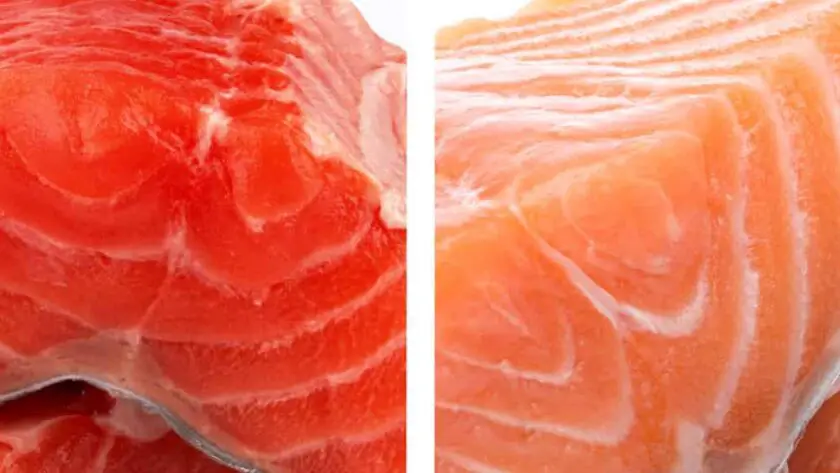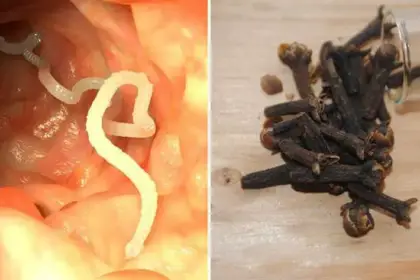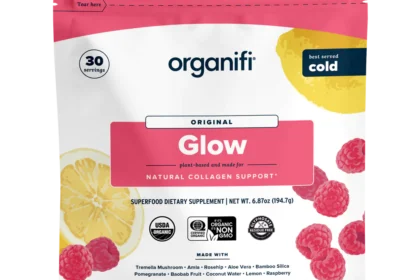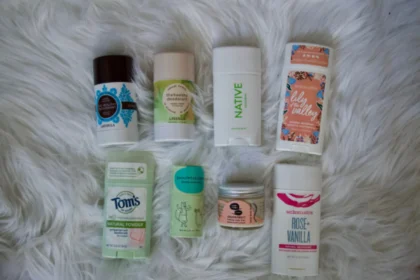In recent years, farm-raised salmon has gained popularity as a convenient and affordable option for seafood lovers. However, beneath its seemingly innocent facade lies a disturbing reality that poses significant risks to both human health and the environment.
This article unveils the hidden dangers of farm-raised salmon and sheds light on the urgent need for a more sustainable and safer alternative.
The Health Risks of
Farm-Raised Salmon
Farm-raised salmon may appear healthy, but the truth is far from it. These fish are often raised in overcrowded, confined spaces where diseases and parasites thrive.

To combat these issues, salmon farms rely heavily on antibiotics, pesticides, and artificial dyes. Consequently, the salmon that reaches our plates is tainted with toxins, including PCBs, dioxins, and heavy metals, which can accumulate in our bodies over time.
Scientific studies have linked these contaminants to numerous health concerns, such as cancer, developmental problems, and impaired immune function.
Furthermore, farm-raised salmon typically contain lower levels of beneficial omega-3 fatty acids, and higher levels of non-beneficial omega-6 fatty acids. When compared to their wild counterparts, wild-caught salmon is a much safer choice.
Food analysis results find the consumption of farmed salmon fillets contributes to higher rates of metabolic disorders, including diabetes and obesity.These farmed salmon also contain levels of toxins, including PCBs and dioxin, that are five times higher than levels in other tested foods.

The report suggests the primary causes of farmed salmon toxicity stem from the toxicants in fish feed, like ethoxyquin, and environmental concentrations of the chemicals, whether from terrestrial sources or farmed fish itself.
The U.S. permits the use of the pesticide ethoxyquin on fruit, vegetables, and meat meant for animal feed, with no intended uses on fish. However, fish feed manufacturing companies fail to address the use of ethoxyquin as a preservative to prevent oxidization/spoilage of fatty tissue.
Farmed salmon testing reveals levels of ethoxyquin are up to 20 times higher than levels allowed in fruits, vegetables, and meats. Despite there being no intended uses of ethoxyquin on food for human consumption, the chemical can pass to humans from contaminated food sources.
Although claims suggest ethoxyquin has no human health effects, scientific evidence establishes that the chemical can induce DNA damage in human lymphocyte cells and chromosome aberrations.
Environmental Impact of
Farm-Raised Salmon
The ecological consequences of salmon farming are staggering. Fish farms, often located near coastlines, release huge amounts of waste, antibiotics, and chemicals directly into the surrounding marine ecosystems.

This pollution triggers harmful algal blooms and contributes to oxygen-deprived dead zones, devastating local wildlife populations. Escaped farm salmon, which carry diseases and parasites, pose a serious threat to wild salmon populations by interbreeding and transmitting pathogens.
Additionally, the high demand for fishmeal and fish oil in salmon feed contributes to overfishing and the depletion of marine resources. These unsustainable practices not only disrupt fragile aquatic ecosystems but also disrupt the delicate balance of our planet’s biodiversity.
Although current pesticide use and pollution contaminate both farmed and wild salmon populations, banned legacy pesticides like DDT, dieldrin, chlordane, and toxaphene continue to contaminate many major waterways, including shorelines where fishing is common.
(Legacy Pesticides are chemicals that were once used in the US but are now canceled or banned because of health risks to humans, animals, or the environment.)
Legacy pesticides remain in the environment for decades as these products are relatively stable, with long half-lives. This slower breakdown rate and affinity to lipids (fats) allow these toxicants to accumulate in the fatty tissue of many marine species, including fish.

Farmed salmon has a much higher fat content than wild salmon and thus has the potential to accumulate more lipophilic (fat-loving) toxic chemicals. Just another reason to choose wild caught salmon over farm raised.
Seeking Sustainable Alternatives
With the alarming risks associated with farm-raised salmon, it is crucial to explore sustainable alternatives. One such option is wild-caught salmon, which offers numerous benefits.
Wild salmon live in their natural habitats, avoiding the health risks and pollution associated with fish farms. By supporting sustainable fishing practices, such as selective harvesting and habitat protection, we can help maintain healthy fish populations and preserve our marine ecosystems.
Another alternative is seeking out reputable sources of responsibly farmed salmon, such as those certified by independent organizations like the Aquaculture Stewardship Council (ASC) or the Global Aquaculture Alliance (GAA).
These farms prioritize environmental sustainability and adhere to stringent standards to minimize the use of antibiotics, chemicals, and the overall ecological impact of their operations.

The Take-Away
The alarming truth about farm-raised salmon cannot be ignored. Its health risks and devastating impact on our planet’s fragile ecosystems make it imperative to reconsider our seafood choices.
By opting for wild-caught salmon or responsibly farmed alternatives, we can protect our health and contribute to the preservation of our environment. As consumers, we hold the power to drive change in the seafood industry by demanding transparency, sustainable practices, and supporting organizations and initiatives that promote responsible aquaculture.
Together, we can safeguard our health and ensure a brighter, more sustainable future for generations to come.






